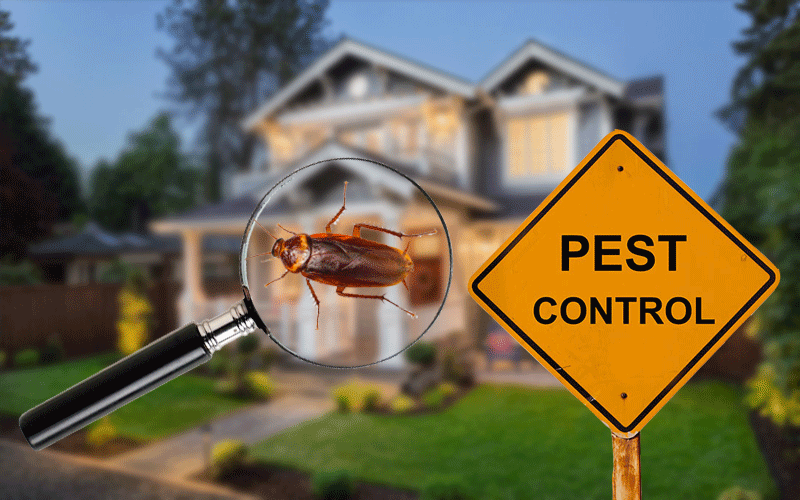Specialist A1 Charlotte Bed Bug Exterminator - Quality Solution Guaranteed
Specialist A1 Charlotte Bed Bug Exterminator - Quality Solution Guaranteed
Blog Article
Bed Bug Treatment Failure: Comparing Chemical Vs. Non-Chemical Solutions
In the world of insect control, specifically when managing the persistent issue of bed bugs, the option in between chemical and non-chemical therapy options can be a crucial one. Both techniques supply distinctive advantages and drawbacks, affecting factors such as performance, safety factors to consider, and total price. By examining the nuanced information of each approach, a clearer understanding of which path to seek in dealing with a bed insect problem can be attained.
Efficiency of Chemical Treatments
Chemical treatments for bed pest invasions have actually been widely identified for their fast and potent efficacy in eradicating these insects. When thinking about the performance of chemical therapies, it is essential to understand that they can supply a comprehensive and fast solution to a bed bug issue.
Moreover, chemical therapies have the benefit of offering recurring results, suggesting that they can remain to get rid of bed insects even after the initial application. This residual action is particularly helpful in combating any potential re-infestations. Additionally, the quick activity of chemical treatments can bring alleviation to individuals encountering serious bed pest infestations, allowing them to regain control of their living spaces quickly.
Safety And Security Interest In Chemical Solutions
When making use of chemical remedies for bed pest therapy is making sure the safety of passengers and the atmosphere,One crucial aspect that calls for cautious consideration. While chemical therapies can be effective in getting rid of bed insects, they may present dangers otherwise managed appropriately. One of the key security interest in chemical solutions is the possible injury they can trigger to human health. Exposure to specific chemicals used in bed insect treatments can result in breathing concerns, skin irritation, or other negative reactions, particularly in people with pre-existing conditions or level of sensitivities. Additionally, inappropriate application or dosage of chemical pesticides can result in toxic residues lingering in the treated location, posturing long-term health threats to owners.
In addition, the ecological effect of chemical options is an additional considerable factor to consider. Some pesticides utilized in bed bug therapies might be dangerous to valuable pests, wild animals, and environments if they seep right into the dirt or water supply. It is necessary to make use of chemical treatments carefully, adhering to security standards, and taking into consideration much less harmful options to mitigate these risks and ensure the secure and effective administration of bed insect invasions.
Advantages of Non-Chemical Strategies
Taking into consideration the possible safety and security worries and ecological influence associated with chemical remedies for bed bug treatment, checking out non-chemical approaches offers a promising choice with several distinctive advantages. Non-chemical approaches use a more secure option for houses, especially those with family pets, children, or individuals sensitive to extreme chemicals. These approaches get rid of the dangers of direct exposure to toxic materials, lowering the possibility for negative health and wellness effects. Additionally, non-chemical therapies are eco-friendly, as they do not add to air or water air pollution, making them a sustainable selection for parasite control.
In addition, non-chemical remedies can be reliable in targeting bed pests, consisting of hard-to-reach areas where chemical treatments may not pass through. Methods such as warm therapy, vacuuming, steam cleansing, and bed mattress encasements supply extensive obliteration without using dangerous chemicals. Moreover, non-chemical strategies can be less disruptive, calling for minimal preparation and permitting quicker reentry right into treated areas. Generally, choosing non-chemical bed bug therapy methods not just focuses on safety and ecological protection yet additionally makes visit this site certain reliable and thorough insect control.
Limitations of Non-Chemical Treatments

Additionally, non-chemical treatments typically require numerous applications to achieve effective elimination. This can be taxing and may not constantly assure complete elimination of all bed pests and their eggs, specifically in hidden or hard-to-reach areas.
Additionally, the success of non-chemical treatments greatly depends on correct application and thoroughness, which can be testing for people without professional competence. Insufficient application of non-chemical methods may cause insufficient obliteration, leading to persistent problems and the need for extra treatments.
As a result, while non-chemical therapies have their benefits, it is vital to acknowledge these constraints and consider them when establishing the most effective technique for handling bed bug problems.
Price Comparison: Chemical Vs. Non-Chemical Options
Given the restrictions linked with non-chemical treatments, an essential facet to evaluate in you could try these out the context of bed insect monitoring is the cost comparison in between chemical and non-chemical choices. In contrast, non-chemical treatments like warmth treatment or steam can be extra costly, with costs ranging from $1,000 to $6,000 for an entire home. While the initial cost of chemical treatments may seem reduced, multiple treatments might be required to totally get rid of the infestation, possibly raising the overall price.
Final Thought

Thinking about the possible security issues and environmental impact connected with chemical solutions for bed pest treatment, checking out non-chemical strategies provides a promising alternative with numerous unique advantages.Offered the restrictions connected with non-chemical treatments, a necessary facet to assess in the context of bed pest administration is the cost comparison between chemical and non-chemical options. In contrast, non-chemical therapies like heat therapy or steam can be a lot more pricey, with expenses ranging from $1,000 to $6,000 for an entire home. While the first expense of chemical treatments may seem lower, multiple treatments may be required to completely eliminate the problem, possibly raising the overall expense.In conclusion, when comparing chemical and non-chemical bed insect treatment alternatives, it is important to take into consideration effectiveness, security, advantages, restrictions, and expense.
Report this page